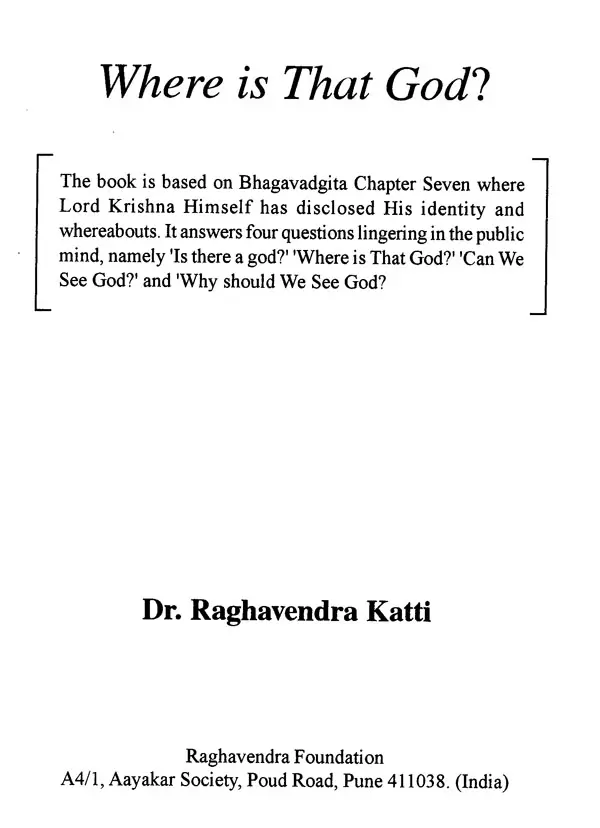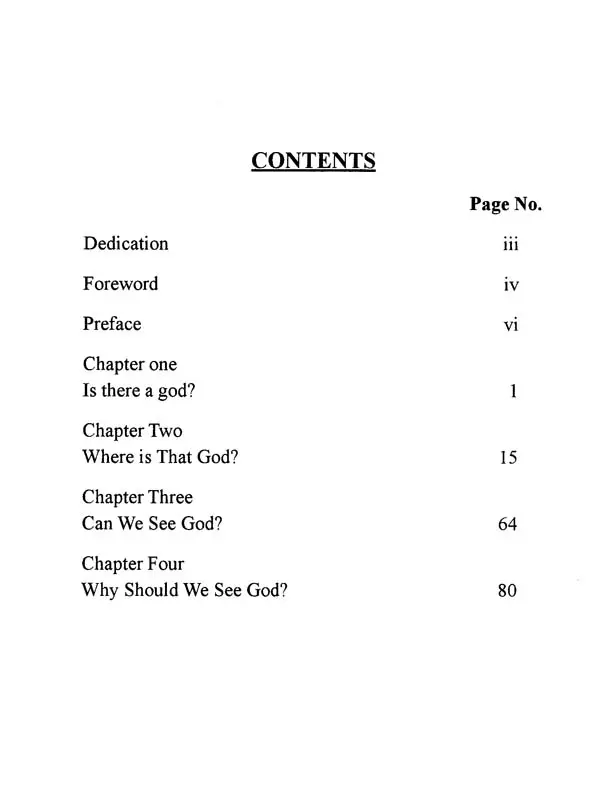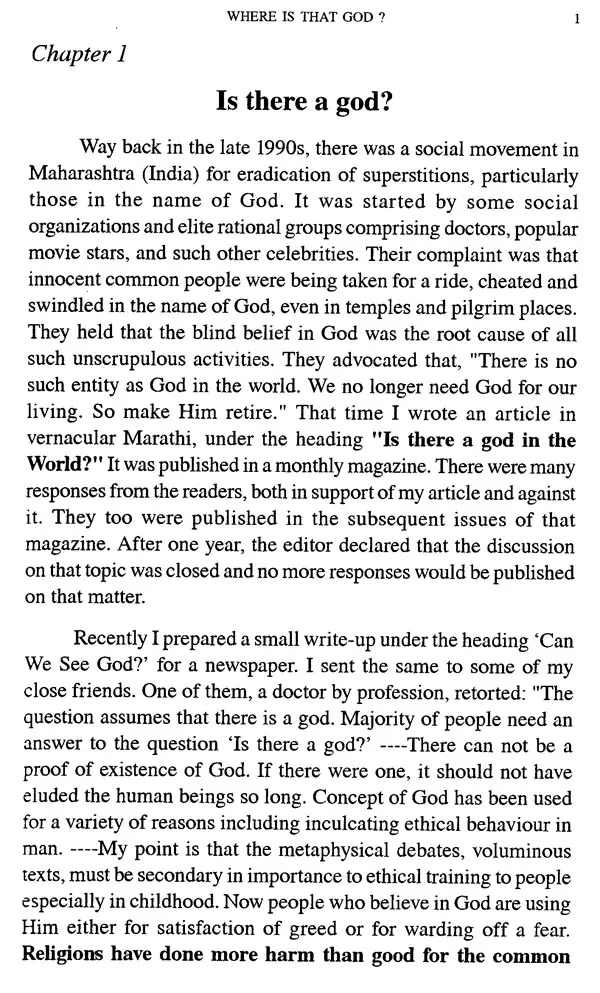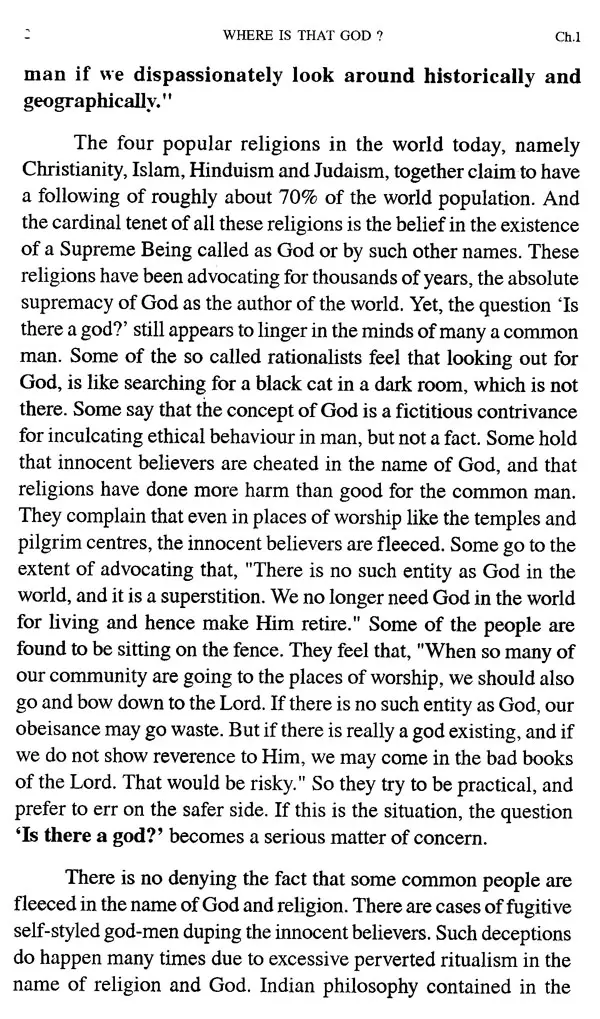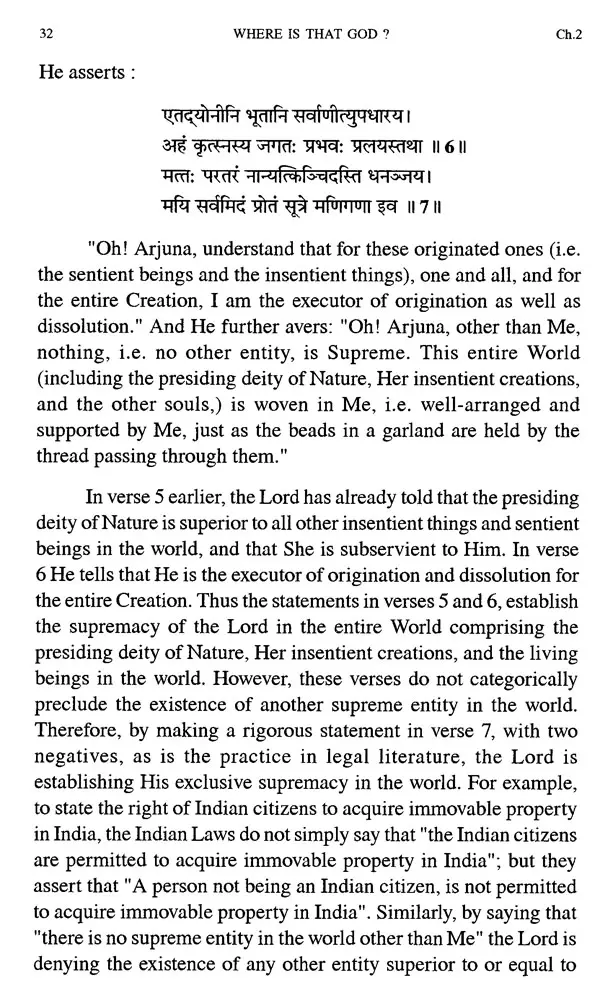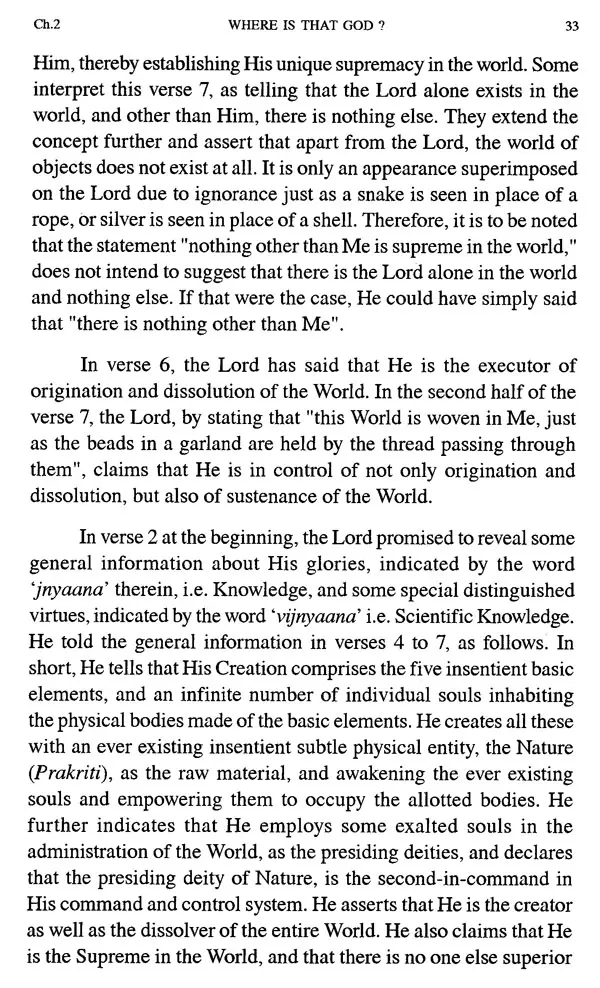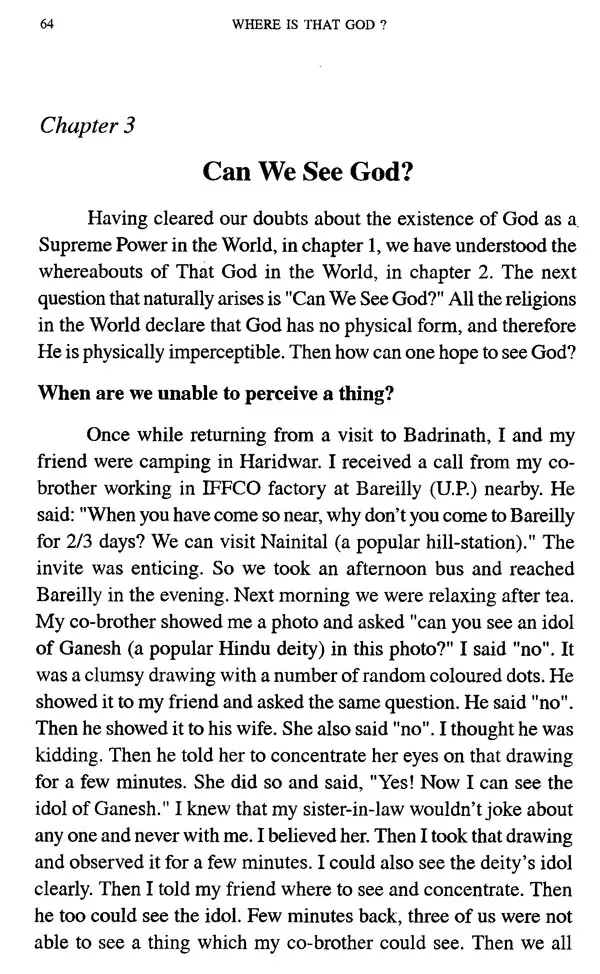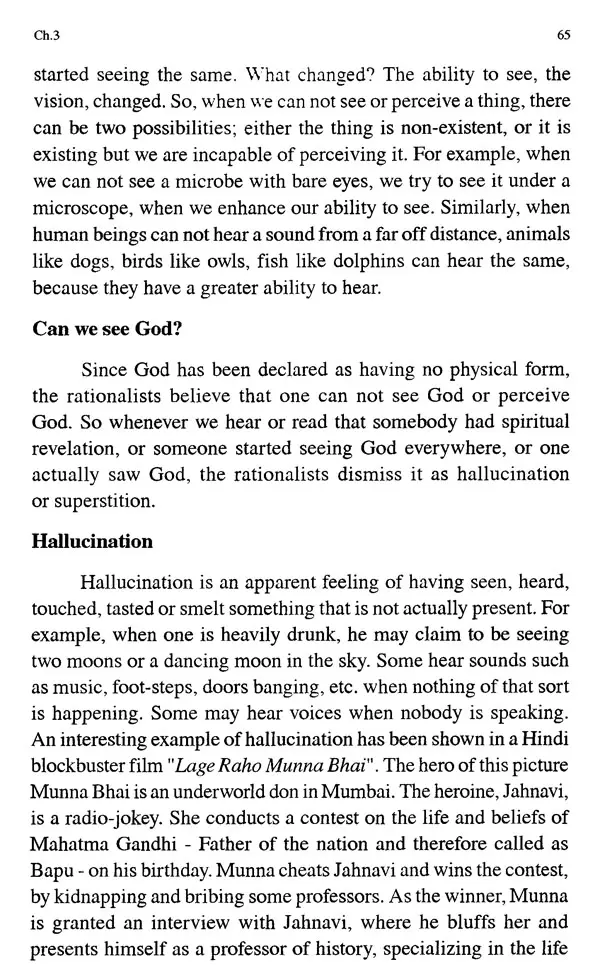
Where is That God ?- As Told by God Himself
Book Specification
| Item Code: | UAN511 |
| Author: | Raghavendra Katti |
| Publisher: | Raghavendra Foundation, Pune |
| Language: | English |
| Edition: | 2022 |
| ISBN: | 9788195494019 |
| Pages: | 96 |
| Cover: | PAPERBACK |
| Other Details | 8.50 X 5.50 inch |
| Weight | 140 gm |
Book Description
Dr. Raghavendra Katti was a student in my Bhagawadgita / Upanishad Classes in Pand He is a highly qualified student. He has studied spiritual texts on his own and also has published books.
This book has been nicely presented and I am sure it will help people to understand the presence of God not away from themselves, but as themselves and the entire World as God.
Hence, to the question "Where is That God?" answer is "Where is He not? In reality there is nothing other than God. According to the Scriptures there is only God". Whatever one sees is God "In All Forms" as in reality God has No Form". God is the Essence of this Creation.
The four popular religions in the world today namely Christianity, Islam, Hinduism and Judaism, have a following of an overwhelming majority of about 70% of world population. And the cardinal tenet of all these major religions is the faith in the existence of a Supreme Being, God. Voluminous literature is written in all these religions about God. Yet, God is a perpetual riddle for many. Some rationalists hold that the concept of God is not a valid knowledge, but a fictitious contrivance for enforcing ethical behaviour among the people, under the threat of God. Some rationalists believe that Hinduism is not a religion similar to the other three non-native religions, but is a bunch of thoughts, beliefs and practices based on traditions, and that God does not have a vital role in all of them. They describe Hinduism as a way of life. However, the taste of mango can be known only through one's own experience, but not through any amount of description. Such rationalists and atheists are mostly not practitioners of any religion, but only arm-chair theorists. Therefore, their observations about God do not deserve to be taken seriously. And it is futile to argue with them. The great rationalist Albert Einstein said, "The more I study science, the more I believe in God."
It is true that during the Vedic period there was no unanimity about God and the religious practices. There were different sects like Vaishnava, Shaiva, Shaakta, Maheshwari, Sankhya and so on, all having allegiance to Vedas. It was an age of speculative chaos. But in 5th century BCE, Vedavyasa reviewed the entire Vedas comprehensively (samanvaya) and pronounced his decisions on what exactly was the Vedic teaching i.e. Vedanta. He thereby gave an exhaustive system called Vedantadarshana, for the spiritual practice and progress. It is known as Sanatana Vaidika Dharma or Sanatana Bhagavata Dharma, which is the eternal value system of the Hindus. He explained this system to the masses through his works like Mahabharata, Bhagavatapurana, and the other Puranas. An overwhelming majority of Hindus do follow this Sanatana Bhagavata Dharma. I call this as Hindu Religion. The word "Hindu' is actually a geographic term like British, French, Afghan, etc. and it refers to all those who inhabit this peninsula called Hindustan. Since a huge majority of these inhabitants practise this Vedic Religion, I have called it as Hinduism. It is just a name. During the medieval period, some more sects sprang up among Hindus, like dvaita, advaita, vishishtadvaita, and so on. The founders of all these sects universally accepted the Vedantasootras, and they claimed that their respective doctrine was based on these Sootras only, and that it was only Vedanta. But they overlooked the fact that a Sootra by definition could not be interpreted to yield different and contradictory ideologies. Therefore, those doctrines, which are not in keeping with the Sootras, have no locus standi in Hinduism, and hence can be ignored.
The book, Where Is That God? is premised on a belief in the existence of god, and says that the world's four major religions, Christianity, Islam, Hinduism and Judaism uphold the existence of god. God may play a pivotal role in the three Abrahamic religions, but this is not the case in Hindu beliefs that embrace many schools of thought, including agnosticism and atheism. The Nasadiya Sukta in the Rig Veda leaves the question open for individual interpretation, by merely asking questions that inspire deep thought and reflection. This is why Hinduism is more aptly described as a way of life rather than as a rigid religion.
The rational view is that god had to be invented by humans in order to nurture hope and faith in the mysterious unknown, and to help us derive strength to walk an ethical path of righteous living that will yield happiness and peace. Be that as it may, one or many gods are a ubiquitous part of human life, as all cultural traditions and religions have something or other to say about gods.
Whether god exists or not is not the moot question; it is all about how we use our belief, disbelief or neutrality to avoid hurting another, loving one another, caring and sharing and respecting each other's views and beliefs. An eclectic and altruistic perspective is the mark of an evolved human being, and once there are sufficient numbers of such people, the world will become a far better place than it is now.
**Contents and Sample Pages**
